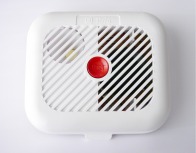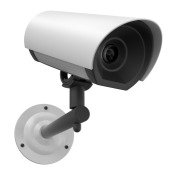Fire Alarm Code and Installers
Fire Code
The fire alarm code has gotten much more sophisticated over the past few years. The NFPA 72, the National Fire Alarm and Signaling Code, is the preeminent written authority on the fire alarm code. It is an established standard. If you have installers, you want to make sure that they have a thorough understanding of the code.

The NFPA 72 is updated roughly every three years. Alarm and signaling systems have gotten more advanced over the years through technological advances. Also, there is more awareness of fire safety. To keep up with changing dynamics the code needs to be updated periodically.
The standards are extremely helpful in commercial settings to ensure that people are safe outside of their home.
Types of Fire Safety Concerns covered with a Code
The fire alarm configuration should meet certain standards. This covers such items as the fire alarm control panel, power supplies, and building safety interfaces.
There are also detection devices. These could be heat detection devices, smoke detection devices, or carbon monoxide detection devices. Once the hazard is detected, there are standards on how to alert the occupants. There are standards on the signals for fire, which are meant to be consistent and are also meant to be differentiated from other signals.
Some systems even have recorded voices to communicate and alert the fire danger. These voice-based systems are useful for big commercial areas, such as hotels or hospitals, because these systems will do a better job in getting people to a safe location.
It costs about $80 to get the latest version of the NFPA 72 code book. To get an idea of the type of content, here is a link from HomeSecurityStore.com for the 1999 version. Do not use this version for any installations. Even if many of the aspects of the code might not have changed, you do not want to take the chance of installing anything that might not be in code.
Fire Alarm Installers

There is a lot to know about the fire code. You want to make sure that you have fire alarm installers who understand the standards regarding fire safety and installation.
A certification that is well known throughout the industry is NICET. NICET stands for the National Institute for the Certification in Engineering Technologies.
NICET has four levels of certifications. NICET certification is not only based on successfully taking the tests but is also based on work experience. NICET does not grant licenses since those are given by your state or local government.
The process for certification for NICET includes passing a test. After the tests have been passed, the institute will check out your work history to ensure that you have the necessary experience for the level that you have attained. The institute will let you know of your certification results within 90 days of your test date.
Summary
Having standards for the fire alarm code ensures that there is consistent quality regarding fire detection and notification.



